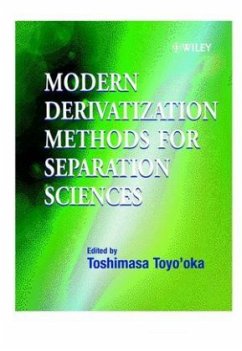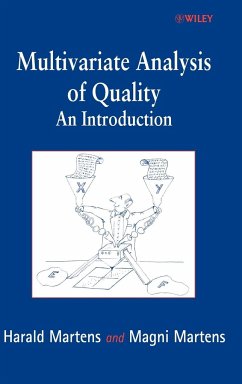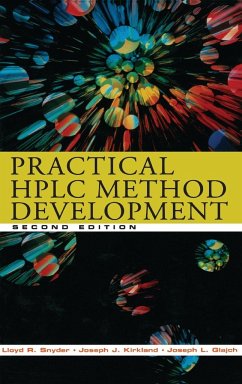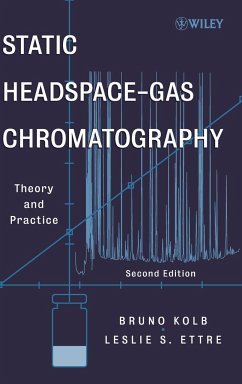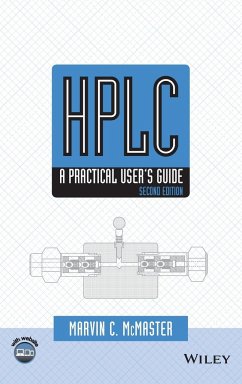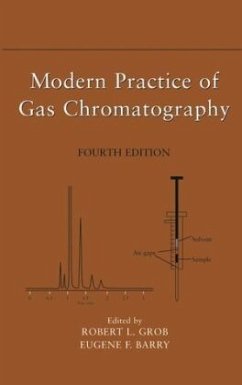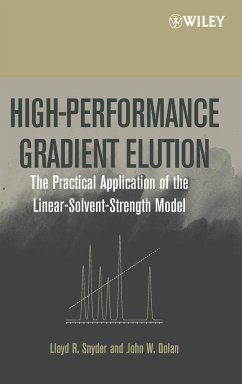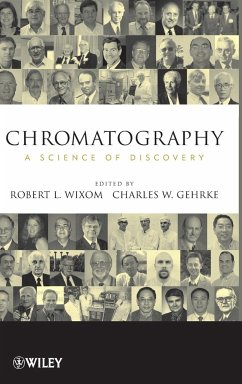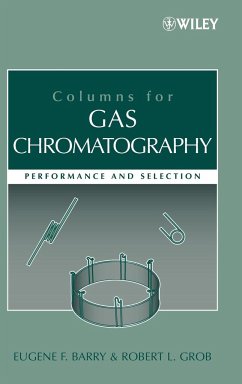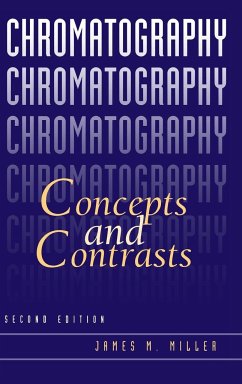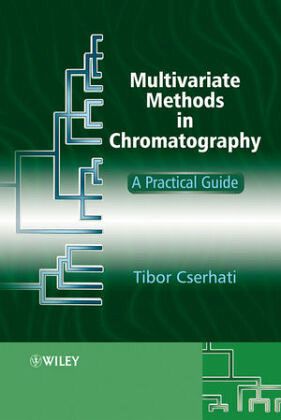
Multivariate Methods in Chromatography
A Practical Guide

PAYBACK Punkte
89 °P sammeln!
Chromatography is a recognized analytical process for the separation of components within mixtures and is regularly used coupled to mass spectrometry for component identification. All analytical techniques generate large amounts of data that can be numerically processed using multivariate techniques. Multivariate analysis, which includes a large number of detailed data processing methods, when applied to chromatography allows users to find the relationship between the molecular structures within a compound and the different systems used in the analysis.Multivariate Methods in Chromatography: A...
Chromatography is a recognized analytical process for the separation of components within mixtures and is regularly used coupled to mass spectrometry for component identification. All analytical techniques generate large amounts of data that can be numerically processed using multivariate techniques. Multivariate analysis, which includes a large number of detailed data processing methods, when applied to chromatography allows users to find the relationship between the molecular structures within a compound and the different systems used in the analysis.
Multivariate Methods in Chromatography: A Practical Guide is intended to show how to use chemometrics for the solution of problems hardly soluble otherwise without the exact knowledge of the underlying, sometimes complicated, mathematical apparatus. The objectives of this book are to present a concise description and evaluation of the various multivariate mathematical-statistical methods applied for the assessment of retention data sets.
The opening chapter presents a discussion of the various multivariate methods available in the 'toolkit' of a chromatographer. The subsequent chapters present a broad range of the use of these methods in GC, LC and electrically-driven chromatography, with an emphasis on their application to pharmaceuticals, food, the environment, biological compounds and medicine.
This essential text is aimed at analysts working in processing plants and quality control environments using chromatographic analysis for any types of solutes, as well as experts in research institutes and those teaching separation science, technology and analytical chemistry. It is relevant to those utilising chromatography in bioinformatics, life sciences and drug discovery as well as chemical engineering, pharmacology, biology, medicine and forensic science. In addition the book will be of interest to students and postgraduate students working in separation science.
MultivariateMethods in Chromatography: A Practical Gide has been written by a practising chromatographer for practitioners, and is intended as a bridge between everyday chromatographic practice and theoretical mathematics.
Multivariate Methods in Chromatography: A Practical Guide is intended to show how to use chemometrics for the solution of problems hardly soluble otherwise without the exact knowledge of the underlying, sometimes complicated, mathematical apparatus. The objectives of this book are to present a concise description and evaluation of the various multivariate mathematical-statistical methods applied for the assessment of retention data sets.
The opening chapter presents a discussion of the various multivariate methods available in the 'toolkit' of a chromatographer. The subsequent chapters present a broad range of the use of these methods in GC, LC and electrically-driven chromatography, with an emphasis on their application to pharmaceuticals, food, the environment, biological compounds and medicine.
This essential text is aimed at analysts working in processing plants and quality control environments using chromatographic analysis for any types of solutes, as well as experts in research institutes and those teaching separation science, technology and analytical chemistry. It is relevant to those utilising chromatography in bioinformatics, life sciences and drug discovery as well as chemical engineering, pharmacology, biology, medicine and forensic science. In addition the book will be of interest to students and postgraduate students working in separation science.
MultivariateMethods in Chromatography: A Practical Gide has been written by a practising chromatographer for practitioners, and is intended as a bridge between everyday chromatographic practice and theoretical mathematics.



